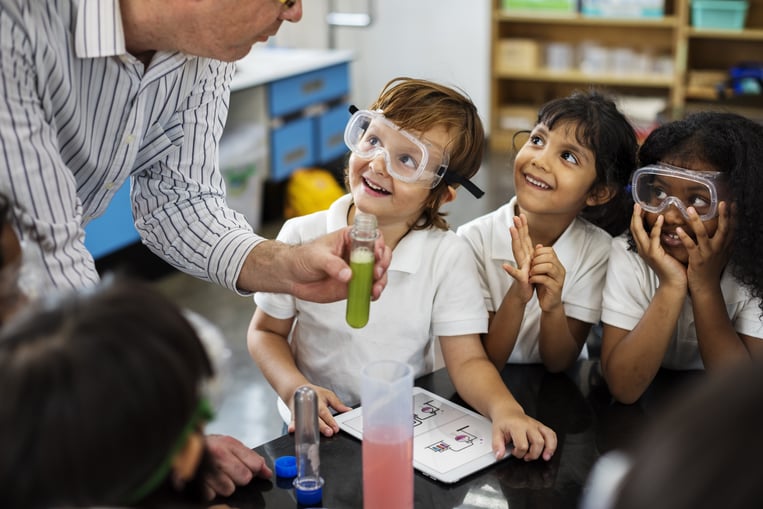
STEM Education Resources Teachers Actually Need in 2026
STEM brings together science, technology, engineering, and math in a connected way.
Science Explored | Published February 19, 2013

Last week, we received a visit from Dr. Daryl Greenfield from the University of Miami in Coral Gables, Florida. Dr. Greenfield conducts educational research with preschool children and recently has focused on the area of preschool science. Some people wonder if preschool children (ages 3-5) are even capable of learning science. In his research, Dr. Greenfield has found not only that preschool children can learn science, but also that introducing young children to science is critical for their future science learning.
What does science look like in preschool? Dr. Greenfield says that science draws on young children’s natural curiosity about their world. Teachers can capitalize on children’s natural curiosity and guide them through the scientific method to help them explore and learn about their world. Through hands-on activities, children learn to ask meaningful questions, draw upon their existing knowledge about their questions, design experiments for how to answer their questions, make predictions about what might happen, and draw conclusions from their findings. Children are not just learning facts about science; they are learning the “process” of science and a set of critical thinking skills that will help them not only in their future science learning but learning in other areas as well.
What about the rest of STEM? When it comes to technology, have you ever seen a preschooler with an iPad? In today’s world, young children are already being exposed to technology. Through purposeful and developmentally appropriate strategies, there is no reason why technology cannot be utilized in preschool classrooms. Fortunately, early math is already an important part of almost all preschool curricula.
It may be more difficult to convince people that there is a place for engineering in preschool. However, as Dr. Greenfield points out, “What are preschool children’s two favorite things to do? Learning about their world and building stuff. Those are science and engineering.” In fact, Dr. Greenfield has just begun a project partnering with groups at Tufts University in Boston, Massachusetts, the National Institute for Early Education Research, and the University of Northern Iowa are to create an integrative science and engineering curriculum specifically for use in preschool classrooms. Usually, engineering activities in preschool involve experimenting and constructing with simple objects. Through these activities, young children can learn important skills such as how to problem-solve through trial and error and how to be flexible in their approaches to different problems.
Despite these advancements in our understanding of the opportunity for STEM learning in preschool, there are still a limited number of preschool science curricula available, particularly curricula that have been proven to be effective. In his research, Dr. Greenfield has found that preschool teachers do not feel prepared to teach science. There is little support (e.g., professional development) for STEM instruction in preschool. However, Dr. Greenfield and other researchers and educators throughout the country are paving the way for exposing our youngest students to STEM education.

STEM brings together science, technology, engineering, and math in a connected way.

Mathematics can be a challenging subject for many students, requiring schools to have effective strategies in place to...

The news headlines are daunting. Math scores are down. School districts are scrambling to turn things around. And...